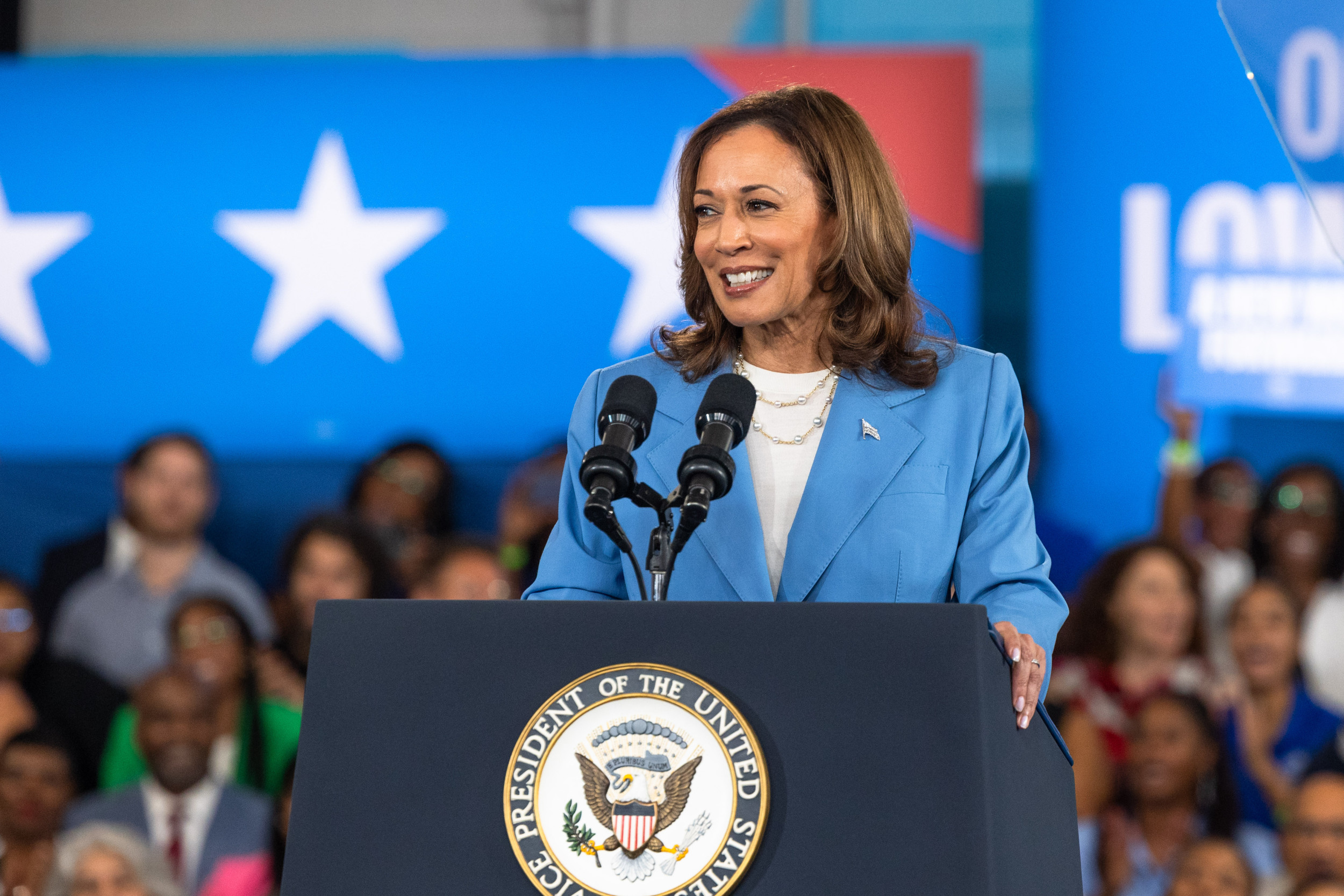As the presidential race ramps up, both Vice President Kamala Harris and Donald Trump‘s running mate, JD Vance, want the child tax credit (CTC) expanded and have proposed updates.
The CTC offers financial assistance to families with children. During the COVID pandemic, the credit was expanded to $3,600 per child. The government estimates it helped 2 million children get out of poverty during the health crisis and assisted families in paying for necessities like food and child care.
But the CTC’s expansion was short-lived, and it returned to the previous amount at the end of 2021. Under current rules, families can get $2,000 per child, even though prices remain high for families on many items, from groceries to housing costs.
Grant Baldwin/Getty Images
For child care in particular, families face extreme costs. The price of day care and preschool surged 263 percent between 1990 and April 2024, according to a new report from KPMG.
Now, a Democrat and a Republican running on presidential tickets are calling to expand the CTC again, but their plans vary in terms of how exactly American families would benefit. Both proposals would increase the current credit, but the amount and the income restrictions are the key differences.
Under Vance’s proposal, families would get a tax credit of $5,000 per child. Harris has suggested $6,000 per child for the first year after birth and $3,600 per year for every year after that.
It’s not yet clear if the CTC would be refundable under either plan. This would matter especially to lower-income families, as they sometimes do not owe enough in taxes to benefit from such an initiative.
There are other differences in the two candidates’ proposals.
If Vance’s CTC plan goes through, there would no longer be income restrictions. Harris has not called for any change to the income rules for the CTC, which would keep the current guideline that only couples making $400,000 or less, or individuals earning $200,000 or less, can receive the credit.
This is not the first discussion in recent months about expanding the CTC. The House of Representatives passed a bill that would have restored the pandemic-era CTC amount, but the measure was opposed in the Senate and didn’t pass there.
Republicans said the expanded CTC would cost too much, while Democrats said the measure would lift an extra 400,000 children out of poverty in its first year after being enacted.
When the CTC expansion was rejected in the Senate this month, Senate Finance Committee Chair Ron Wyden said Vance’s lack of support showed that the Republican VP nominee was not actually supporting American families.
“If JD Vance sincerely gave a whit about working families in America, he would have shown up in the Senate a week and a half ago and voted for my proposal to expand the child tax credit and help 16 million low-income kids get ahead,” the Oregon Democrat said in a statement.
“He didn’t even care enough to use his platform to call on his Senate Republican colleagues to support it,” Wyden continued. “What kept him away while we were voting? He was busy posing for photos on the southern border — another issue he and Donald Trump pretend to care about while they block real solutions for political gain.”
Alex Lundrigan, the federal workforce and finance policy coordinator at the organization Young Invincibles, also called out Republicans for blocking the CTC’s expansion.
“Poverty is a policy choice, and today some members of the U.S. Senate chose to keep 400,000 children in poverty,” Lundrigan said at the time. “Legislators blocked a massive opportunity to make progress for children and families. The expansion of the CTC in this negotiated package would have helped millions of young parents with low incomes. Instead, they are left wondering how they will pay for basic needs in an economy working against them.”
While the most recent vote shows some Republican pushback to the idea of an expanded CTC, the pandemic allowed both sides to come together and offer families financial relief through the credit, said Alex Beene, a financial literacy instructor at the University of Tennessee at Martin.
“It was a great way of offering an economic boost to families that were struggling either with unemployment or underemployment during the period. And once it went away, you could slowly start to feel the negative effect it was having on the purchasing power of the consumer,” Beene told Newsweek.
When it comes to Harris’ and Vance’s proposals, the $1,000 difference in the CTC amount may end up meaning little, he said.
“During a campaign cycle, you’re going to see each side continually raise the price tag in a bid to appeal to voters,” Beene said. “What matters is what can actually make it through Congress. And there’s a good chance, whether it’s a Republican- or Democrat-controlled one, this could make it through based on its popularity and the understanding on both sides that the high price tag of parenthood is keeping many young couples from having a child.”
Kevin Thompson, a finance expert and the founder and CEO of 9i Capital Group, told Newsweek: “Republicans are looking to eliminate income restrictions and provide the credit for everyone, which I do not see as feasible.”
He went on: “Most Americans would agree that the cost of raising a child forces them to make decisions on whether one of the spouses should remain in the workforce, due to ever-increasing child care costs.”
Michael Ryan, a finance expert and the founder of MichaelRyanMoney.com, said Harris’ plan is a “supercharged” version of the pandemic credit, while Vance’s $5,000 proposal feels like a “Republican tax cut dressed up in family-friendly clothes.”
“It’s a hefty number, sure, but without details on how it’ll be funded or implemented, it’s hard to gauge its real-world impact,” Ryan told Newsweek. “It has been met with skepticism for its feasibility.”
